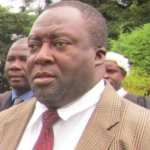President Jackson Silavwe of the Golden Progressive Party (GPZ) has struck a powerful chord in the national conversation around Zambia’s mining policy. His unapologetic focus on local beneficiation—ensuring that Zambians not only benefit from, but also participate in, the mining industry—is not only timely, but crucial for Zambia’s future. For far too long, our mineral wealth has served as a conveyor belt of riches for outsiders, while the vast majority of our citizens remain spectators in an industry that operates in their own backyard.
Silavwe’s message is clear and deserves unwavering support: Getting our mining industry right is not about how many mines we sell, or how much copper we extract, or even how much foreign capital comes in. It is about how many Zambians benefit from this industry directly and sustainably. This is a radical departure from the conventional wisdom that ties mining success to foreign direct investment and production volume.
First, the call to increase indigenous participation in mining operations must be central to Zambia’s mining policy. The true value of our natural resources lies not only beneath the ground, but in the empowerment of our people to extract, process, manage, and profit from them. This means breaking down financial and bureaucratic barriers for Zambian entrepreneurs to own mining licenses, operate mines, and become service providers within the mining ecosystem. It also means intentional policy action to equip Zambians with the technical and financial tools to compete meaningfully.
Second, we must focus on how much of the wealth generated by our mines stays in Zambia—and more importantly, circulates in local communities. Too often, profits are expatriated, while host towns sit in poverty and underdevelopment. A sound mining policy must ensure that tax regimes are fair but firm, and that revenues are reinvested into infrastructure, education, and social services for the people living closest to the mines.
Third—and perhaps most transformative—is Silavwe’s insistence that mining must contribute to wealth creation among indigenous Zambians. This goes beyond job creation. It means building a value chain that includes local smelting, refining, and manufacturing industries that add value to our minerals before they leave the country. It means policies that support Zambian-owned businesses to participate in procurement and supply chains. And it means ensuring that Zambians not only earn salaries, but own shares.
If we get this right, the knock-on effects will be enormous. Zambia can transform from a raw-material-exporting economy into a hub of value-added production, employment, and innovation. President Silavwe’s position is not anti-investor; it is pro-Zambia. Foreign investment is welcome, but it must align with our national interest and long-term vision.
Zambia stands at a crossroads. We can continue selling off our mineral wealth for short-term gain, or we can back leaders like Silavwe who are calling for a people-centered mining policy. If we get our mining industry right, economic prosperity for millions of Zambians will not just be a dream—it will be our new reality.











